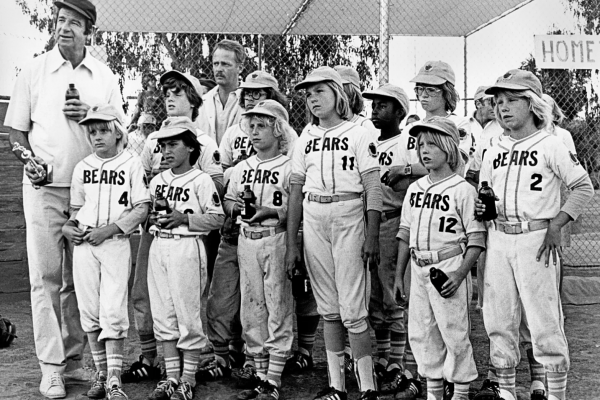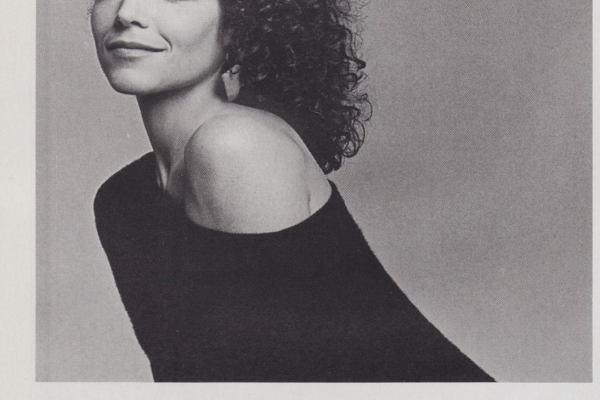Original Publication: New York Woman, November 1989.
It feels odd to say this, but evidently a lot of women still don’t get it: Politics really is connected to our daily lives. It’s not just the recent Webster decision – in which the Supreme Court restricted abortion rights – but child care, maternity leave and wage levels. These are public, not private, issues, and no woman should ever feel she has to struggle alone. I restate the obvious only because a number of activist women have told me lately how oddly disconnected American women seem to be from the processes that determine how they live and how their families survive.
“Most women see politics as an esoteric act by people who have a lot of time or who don’t have serious careers,” says Irene Natividad, the former chair of the National Women’s Political Caucus. In fact, the polls show that only a third of white women and half of black women believe politics relates directly to them at all – ironic when women are 53 percent of the voting population. And women baby boomers – those now in their childbearing years – make up approximately 30 percent of the electorate. That is a lot of potential power not being exercised.
Perhaps such widespread apathy is only a further indictment of the manner in which the official women’s movement has conducted itself in the last ten years. After all, it began the Eighties by losing the ERA, and now the decade is winding up with the real possibility that male-dominated state legislatures – women constitute only 17 percent – will tell a woman what she can do with her body. It’s no secret women’s rights took a battering in the Reagan years. “We were told we had won the battle,” says author Lois Gould. “So women went home to have babies or pursued their careers. Now we’re seeing how fragile a victory it was.”
Who’s to blame? Aside from the usual “all of us” or “sexism” or “the system,” defeat is not really an orphan here. It can be argued persuasively that activist women’s organizations such as NOW – to which we all certainly owe a great deal – have failed utterly to craft an image or a message in recent years that has gotten through to the majority of American women. Most of what women saw, they rejected. A major reason is the feminists to whom the microphones were handed most often. Things have gotten so shrill that when NOW passed a resolution last summer that women ought to explore forming a third party, a female editor of The Washington Post told NOW president Molly Yard in print to “shut up. Please.” “She’s like having a crazy old uncle,” a NOW activist told me. “You just roll your eyes when she starts to speak.”
The problem for women like Yard and former NOW president Ellie Smeal is that there is no poetry in their fury, nothing in their message to move the masses. They dismiss criticism of their tactics and their agenda as misguided, and they refuse to give up the platform to younger women. (As Jesse Jackson once said, “There’s nothing wrong with having . . . a Rolls-Royce ego so long as you don’t have a bicycle brain.”)
Liz Abzug, for example, Bella’s thirty-seven-year-old, politically ambitious daughter, was disappointed last spring at the great abortion march on Washington, D.C. when the organizers failed to have any younger women speakers. “The founders of the feminist movement have got to pass the mantle – I always tell this to my mother,” says the younger Abzug. “Three-fourths of that crowd [at the march] was young, and the organizations have got to get role models up there who will impassion and energize the new women. The women’s movement from the Seventies has to translate to the Nineties. I skip over the Eighties because it’s been a dead movement.”
Not entirely, of course. Women’s groups led the way to kill the nomination of Robert Bork to the Supreme Court. A weakened child care bill has cleared the Senate. Natividad and her group have concentrated on getting women elected and appointed to office, though the U.S. lags behind other developed countries in the number of women who do get elected. Through Natividad’s efforts to organize the résumés of qualified women and present them to President Bush, this administration appointed more women to office in its first six months than Reagan’s administration did in any of its eight years.
Still, Natividad says she is “floored” by how little politically involved women knew about the patronage system. “You have to explain all the time that government service is power and that merely submitting their résumés is not enough. But now we’ve got a crop of women who’ll call back and feel indebted.” Louise Slaughter, a Democratic congresswoman from Rochester, New York, who has just introduced a bill to create more federally funded day-care, agrees. “Those of us who get elected have a responsibility to deal with women’s issues,” she says.
The Webster decision, of course, can be seen two ways: It’s both a negative milestone and a vibrant new organizing tool for a moribund movement. “You have no idea what it’s like to be attached to an organization with no hook,” says Natividad, “and to still keep fighting.” Now the hook is there, and young women are heeded the call. “I finally see women in their twenties feeling and acting alive politically,” says one feminist organizer. “Webster for them is like Vietnam was for me. You never go to sleep again once you’re awakened like this.”
But what form will the new women’s movement take? Choice advocates are heartened that some poll data show abortion could unravel the moderate-conservative majority, which has elected a Republican president three consecutive times. There are indications a number of Republican women would bolt the GOP over this issue and open the floodgates for women’s rights. But other activists worry that by concentrating on choice alone, the movement is again failing to seize an unprecedented opportunity.
Why? Over the last several years a dramatic shift of opinion has begun to occur in this country. “Family issues – those things that voters think of broadly in terms of child care and everything you need to combine work and family – used to be considered private issues,” says feminist pollster Celinda Lake. “Now they are overwhelmingly seen as public issues in which the government has to be involved.”
Has the current women’s movement picked up on this sea change and moved it to the top of the agenda so it might attract millions of new women (and men) to its cause? Of course not. (Until 1987, the only time NOW passed a resolution on child care was at its first national convention twenty years earlier.) “My mother keeps flying down to Washington for these strategy meetings since the Webster decision,” says Liz Abzug. “So I asked her, ‘Are you talking about this in the context of a broader movement?’ ‘No,’ she said. ‘Just abortion.’” Liz Abzug doesn’t understand. “We’re losing a momentous occasion to expand beyond choice.”
“There is a big struggle in the women’s movement now,” says Lake. “What role, what prominence should be given to these family issues compared to the ERA and abortion? Should there be an organization solely for these issues? A number of thoughtful women think the feminist net should and could be cast a lot wider.”
Unless the women’s movement finds leaders to put forth a new agenda or combines to create a potent new group, it will spend another decade losing rights instead of gaining them. It’s downright dumb to let these issues slide when the data is there confronting them daily. “If you limit the movement to the ideas of five or six articulate women who lead a certain kind of life, you’ve lost it,” says Lois Gould.
Right now there is an idea being bandied about that someone ought to seize upon: that of compiling – hopefully before the 1990 congressional elections – a kind of legislative scorecard on family and women’s issues that legislators could be held accountable to. The scorecard would list proposals on abortion, child care, the family medical leave bill currently before Congress and a new piece of legislation to fund research for better family planning methods.
Despite the fact that the U.S. is the only advanced industrialized nation that does not mandate parental leave benefits, NOW is critical of the family medical leave bill – which allows thirteen weeks of unpaid leave to care for newborns or ill family members and prohibits firing a woman because of pregnancy – because it is “too watered-down.” Yet when I asked a liberal Democratic West Coast congressman with three young children what he thought the bill’s chances were this session, he said, “That is a far-reaching bill, and I don’t think we’re passing anything these days that’s far-reaching.” When I posed the same question to an East Coast Republican congressman with a young daughter, he answered, “Well, maybe if business gets its way on the capital gains tax, they’ll think they have to give something in return – if you really push for it.”
It seems to me the women’s movement ought to be defending a woman’s right not to be fired for becoming pregnant with the same fervor it is fighting for the right not to embrace maternity. So far, the old gray mares of the movement haven’t demonstrated that they can comprehend the new reality staring them in the face. Isn’t it time they gracefully moved on to iconhood? Potential new leaders who have been incredibly reverential to the “foremothers” are champing at the bit, waiting to get moving.
This article is typed from the original material. Please excuse any errors that have escaped final proofreading.




No Comments